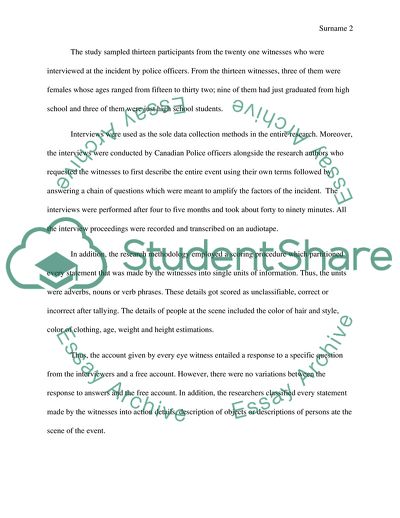Cite this document
(A Case Study of Eyewitness Memory of a Crime by Yuille & Cutshall Article, n.d.)
A Case Study of Eyewitness Memory of a Crime by Yuille & Cutshall Article. Retrieved from https://studentshare.org/psychology/1813537-a-case-study-of-eyewitness-memory-of-a-crime
A Case Study of Eyewitness Memory of a Crime by Yuille & Cutshall Article. Retrieved from https://studentshare.org/psychology/1813537-a-case-study-of-eyewitness-memory-of-a-crime
(A Case Study of Eyewitness Memory of a Crime by Yuille & Cutshall Article)
A Case Study of Eyewitness Memory of a Crime by Yuille & Cutshall Article. https://studentshare.org/psychology/1813537-a-case-study-of-eyewitness-memory-of-a-crime.
A Case Study of Eyewitness Memory of a Crime by Yuille & Cutshall Article. https://studentshare.org/psychology/1813537-a-case-study-of-eyewitness-memory-of-a-crime.
“A Case Study of Eyewitness Memory of a Crime by Yuille & Cutshall Article”, n.d. https://studentshare.org/psychology/1813537-a-case-study-of-eyewitness-memory-of-a-crime.


